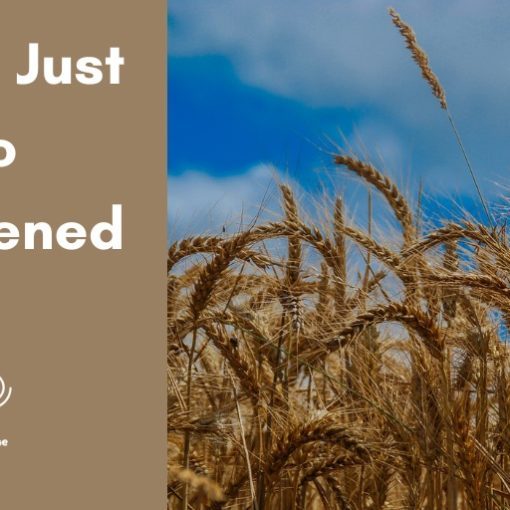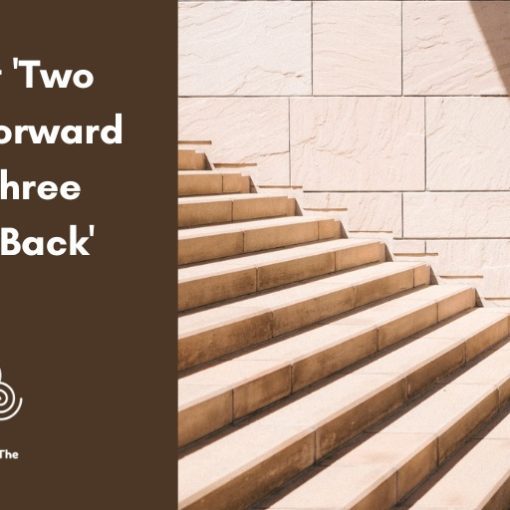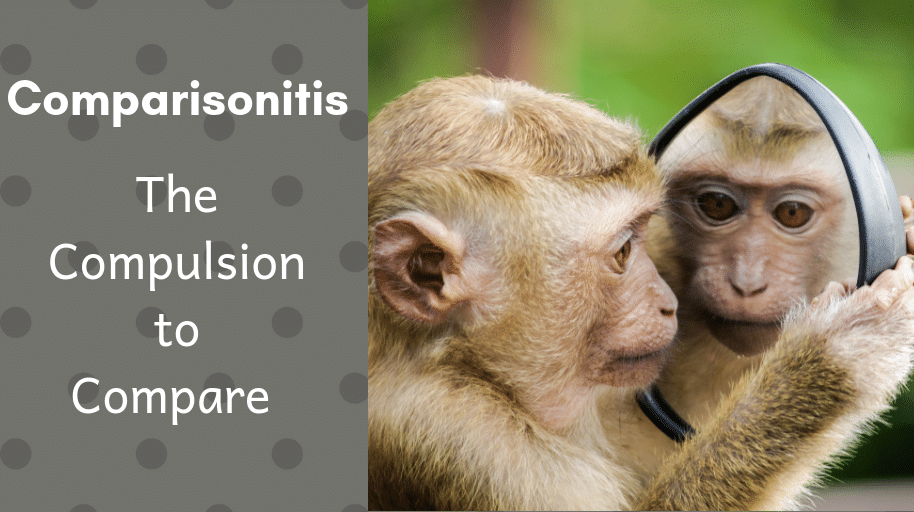Nurses, doctors, counselors, etc. can all make a difference to our mental health recovery, but the more lasting help will come from a committed companion — someone like Ruth who will break bread with us.
It was like a revolving door of people entering their life and then leaving it. In and out, and no one sticking around long enough to make a sustained difference.
Nurses, doctors, support workers, pharmacist, housing manager, benefit caseworkers, dieticians, counselors, occupational therapists, budget caseworker, employment specialist.
The list can go on and on of people involved in support of someone with a mental illness.
They come and go.
Offer the advice and support they are funded to provide, then move on to the next client. Funding allocations change, people leave for a new job, models of care change, and the continuity of support takes a hit.
Beneath what our culture calls psychological disorder
is a soul crying for what only community
can provide. Larry Crabb
Naomi
Let me introduce you to a friend of mine. Her name is Naomi, and she went through a tragedy.
In her fifties, her husband died. He was the sole provider for her so as well as the loss of her closest companion she also lost her source of income.
To add to this, she had two married sons who also died.
Now she had lost her husband and her two sons. Grief poured through her every thought. She had lost everything held dear. Her daughter in laws were also in poverty.
Living in a society like our own, there was ‘professional’ help available.
She went to see her doctor, who with compassion, talked about what could be offered to her. Maybe some medication to help with the grief and loss of sleep.
She went on to see a counselor to talk about her loss. Government agencies helped her with a benefit, and food banks supported her, a budgeting advisor helped her manage her money, people in the church prayed for her.
Her daughters-in-law were going through many of the same struggles but because they were young and had more opportunities of finding a new husband they were starting to pull apart from the bonds that once held the family tight.
Naomi was beginning to feel more and more isolated. People came and went.
She was a client to many and a companion to none.
The word ‘Companion’ has an interesting background
Companion – Middle English: from Old French compaignon, literally ‘one who breaks bread with another’, based on Latin com- ‘together with’ + panis ‘bread.’
My story of Naomi is based somewhat out of a true story from the book of Ruth.
Naomi did lose her husband and her two sons, but the outcome was vastly different. In fact, the result saw her daughter in law, Ruth, remarrying and having a lineage that led to Jesus. You can read the family tree here. Matthew 1:1-5
The tipping point was a compelling vision
If you’re not familiar with this beautiful story, then I suggest you read the Book of Ruth. It’s short and easy to read. Just four chapters.
The story swings on a beautiful commitment made by Ruth towards her despairing mother in law, Naomi.
Naomi was left alone, without her husband or sons. 6-7 She decided to return to Israel with her daughters-in-law, for she had heard that the Lord had blessed his people by giving them good crops again.
8 But after they had begun their homeward journey, she changed her mind and said to her two daughters-in-law, “Why don’t you return to your parents’ homes instead of coming with me? And may the Lord reward you for your faithfulness to your husbands and to me. 9 And may he bless you with another happy marriage.” Then she kissed them, and they all broke down and cried.
10 “No,” they said. “We want to go with you to your people.”
11 But Naomi replied, “It is better for you to return to your own people. Do I have younger sons who could grow up to be your husbands?[b]12 No, my daughters, return to your parents’ homes, for I am too old to have a husband. And even if that were possible, and I became pregnant tonight, and bore sons 13 would you wait for them to grow up? No, of course not, my daughters; oh, how I grieve for you that the Lord has punished me in a way that injures you.”
14 And again they cried together, and Orpah kissed her mother-in-law good-bye, and returned to her childhood home; but Ruth insisted on staying with Naomi.
15 “See,” Naomi said to her, “your sister-in-law has gone back to her people and to her gods; you should do the same.”
16 But Ruth replied, “Don’t make me leave you, for I want to go wherever you go and to live wherever you live; your people shall be my people, and your God shall be my God; 17 I want to die where you die and be buried there. May the Lord do terrible things to me if I allow anything but death to separate us.”
18 And when Naomi saw that Ruth had made up her mind and could not be persuaded otherwise, she stopped urging her. Ruth 1:5-18
Ruth connected into a bigger story going on than what was being presented in the trauma of the present moment. God was up to something good in a black hole.
Good things happen when we commit to a Spirit-inspired compelling vision.
This person needs professional help
There’s a disconnect going on.
People come and talk about their problems, and you feel hopelessly inadequate so you refer them on to a professional, someone who has specific skills, resources, wisdom and time to help.
You feel a sense of relief that you don’t need to be involved anymore.
The box has been ticked, and you like Orpah can kiss them goodbye and return to your land, of self-interests and self-protective safety.
I’m not saying we don’t need professionals such as nurses, doctors, counselors, etc. but when we delegate away what love calls us to do, then everyone loses.
[Tweet “When we delegate away what love calls us to do then everyone loses.”]
Eating bread and drinking wine
Who are you eating bread and drinking wine with?
As Christians, we look to Communion or the Eucharist as being something you do at Church. We pass the bread, sip the wine, take a wafer, but rarely is there ever a deep companion connection to each other.
The companion is the one who eats bread with you.
The ones who make the most difference in a persons mental health recovery are not the professionals. It is the family members, the friends, those that companion themselves to the Naomi soul.
Pig Snouts
Today in New Zealand, yet another report will be released about our Mental Health Crisis. Billions of dollars will be spent on committees, professional services, agencies, advertising campaigns, etc
It will I believe be a waste of money, but it will make us feel good because we are supposedly doing something.
I get annoyed at all this.
This might offend you, but I believe there are many pig snouts in the trough of human misery.
People (with good intentions I’m sure) who feed off the system as it currently is.
What would happen if we encouraged friendships that stuck close like Ruth to Naomi?
There are “friends” who pretend to be friends,
but there is a friend who sticks closer
than a brother. Proverbs 18:24
The companion
I want to empower Ruth, and I want to enable you.
It is our friends and the family that will ultimately turn the Mental Health crisis around.
When we learn how to ask good questions, to pray with love and commitment, to shed tears and to break bread.
I want Turning the Page to be a place for Naomi in her distress to find a home.
Where Ruth, also in distress, will find some resources and encouragement to break bread with others.
Quotes to consider
- The greatest need in modern civilisation is the development of communities, true communities where the heart of God is home, where the humble and wise learn to shepherd those on the path behind them, where trusting strugglers lock arms with others as together they journey on. Larry Crabb
- Real encouragement occurs when words are spoken from a heart of love to another’s recognized fear. Larry Crabb
- Christianity is one beggar telling another beggar where he found bread. D.T Niles
- In Successful Psychotherapy: A Caring, Loving Relationship, psychologists C.H. Patterson and Hidore admit that psychotherapy is in chaos. Their solution is worth a second look. Profession helping efforts, they suggest, should abandon identifying specific diagnosable disorders and coming up with specific technical treatment plans. They should instead focus on one simple yet profound idea – that the essence of all successful psychotherapy is love.
They go so far as to suggest that their book could well have been titled Psychotherapy: The Purchase of Love. Larry Crabb Becoming a True Spiritual Community: A Profound Vision of What the Church Can Be - I want us to relate to one another, not as moralist to sinner or therapist to patient, but as saint to saint, father to child, friend to friend, as true lovers, with the confidence that we can help each other believe that, by the grace of God, there is something good beneath the mess. Even when all we can see is the mess, I want us to believe that we can nourish the good and encourage its release. Larry Crabb Connecting
Questions to answer
- What is the most challenging aspect of becoming more like Ruth?
- Why do we refer people to others rather than choose to relate deeply?
- If you had a billion dollars to spend on Mental health where you do think it would be best spent? On people like Ruth or Dr. Bob?
Further Reading
https://turningthepage.co.nz/samaritan-heal-mental-health/
Barry Pearman
Photo by Priscilla Du Preez on Unsplash





